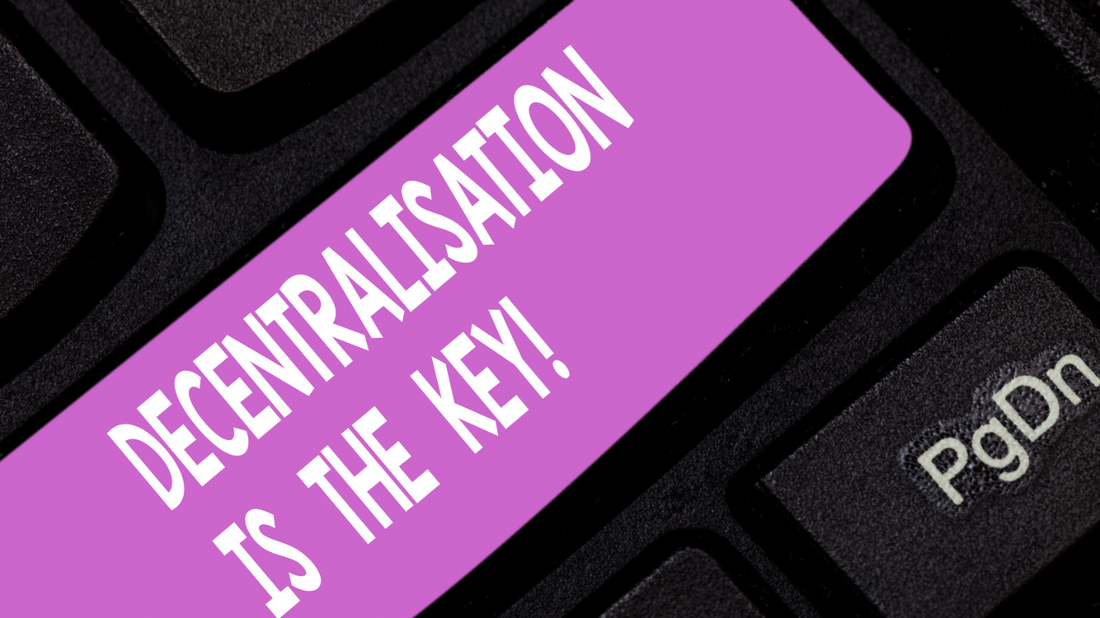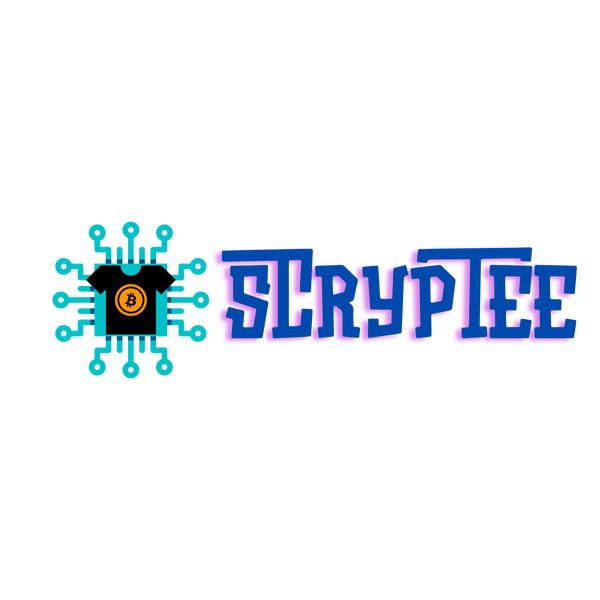
Decentralization: The Power Shift of the Digital World
Share
Decentralization is one of the key concepts that make the blockchain and cryptocurrency revolution so exciting. It’s a shift from centralized control (think banks, governments, or corporations) to a more peer-to-peer, transparent system. But what does decentralization really mean? Why is it so important for crypto, and how does it impact the way we use digital assets?
In this blog, we’ll explore what decentralization is, why it matters, and how it’s reshaping industries worldwide.
What is Decentralization?
Decentralization refers to the distribution of power away from a central authority. In the context of blockchain and cryptocurrency, it means that no single entity (like a bank or government) controls the system. Instead, control is spread across a network of participants, all of whom have an equal say and can verify transactions.
In simpler terms, decentralization is about removing the middleman and allowing users to interact directly with one another on a secure, transparent platform.
How Decentralization Works in Crypto
In traditional finance, banks and financial institutions handle the transfer of money, verify transactions, and ensure everything is secure. This means users are dependent on a central authority to facilitate their financial dealings.
In a decentralized system like Bitcoin or Ethereum, this power is distributed among thousands of independent nodes (computers). These nodes communicate with one another, validating transactions and securing the network without a central authority.
Key components of decentralization in crypto:
• Distributed Ledger: Blockchain, a public ledger of all transactions, is maintained by multiple participants rather than one central entity.
• Consensus Mechanisms: Methods like Proof of Work (PoW) or Proof of Stake (PoS) help ensure that all participants agree on the state of the network.
• Smart Contracts: Self-executing contracts written in code that automatically execute transactions when certain conditions are met, eliminating the need for intermediaries.
Benefits of Decentralization
1. Transparency
In a decentralized system, all transactions are recorded on a public ledger that anyone can access. This transparency reduces fraud and increases accountability since every participant can independently verify transactions.
2. Security
Decentralization makes systems more secure because there’s no single point of failure. Even if one part of the network is compromised, the rest of the system remains intact. Crypto networks are often considered more secure than traditional financial systems due to their distributed nature.
3. Censorship Resistance
Centralized systems are vulnerable to government or corporate censorship. With decentralization, it’s much harder for any single entity to block or alter transactions, ensuring that financial freedom is maintained.
4. Lower Fees
Without middlemen like banks or payment processors, the transaction fees are typically lower. This is particularly beneficial for global transactions, where fees for international transfers can be very high.
5. Financial Inclusion
Decentralized systems provide financial services to anyone with internet access, making it easier for people in underbanked or unbanked regions to participate in the global economy.
Decentralization Beyond Crypto
While decentralization is most commonly associated with cryptocurrencies, its impact goes far beyond finance. Let’s look at some other industries where decentralization is making waves:
1. Decentralized Finance (DeFi)
Traditional financial services, like lending, borrowing, and insurance, are being replicated on blockchain networks through decentralized protocols. DeFi eliminates the need for banks and other intermediaries by using smart contracts to facilitate financial transactions.
2. Decentralized Autonomous Organizations (DAOs)
DAOs are organizations that are run by code rather than by centralized leadership. Members of a DAO participate in decision-making through voting, and all actions are transparent and executed by smart contracts.
3. The Metaverse
Many metaverse projects aim to create decentralized virtual worlds where users own their assets and can participate in governance. Decentralization in the metaverse ensures that no single entity controls the virtual experience, giving users more freedom and control over their digital lives.
4. Supply Chain Management
Decentralized blockchain technology is being used to create transparent and traceable supply chains. By distributing the control of supply chain data, it reduces fraud, improves efficiency, and ensures products are sourced ethically.
Challenges of Decentralization
While decentralization offers numerous benefits, it’s not without its challenges.
• Scalability: Decentralized networks can struggle to handle large volumes of transactions quickly, especially if they are reliant on Proof of Work mechanisms.
• Regulation: Decentralized systems operate outside the control of government regulators, which can make it difficult to apply traditional laws and policies to the space.
• Security Concerns: While decentralized systems are generally more secure, the decentralized nature of some projects can also lead to vulnerabilities, especially if poorly designed.
• User Adoption: Many people are still unfamiliar with decentralized systems, and education is key to encouraging widespread adoption.
The Future of Decentralization
As technology evolves and more industries experiment with decentralized models, it’s likely that we’ll see further innovations and wider adoption. Decentralization could reshape everything from finance to social media to healthcare. It empowers individuals and communities, making the system more open, secure, and efficient.
Final Thoughts
Decentralization is more than just a buzzword—it’s a revolution in the making. By shifting power from centralized entities to decentralized networks, we’re opening up a world of possibilities. Whether in crypto, finance, or beyond, decentralization has the potential to change the way we live, work, and interact with the world.
So, get ready—the decentralized future is here, and it’s only just beginning!
Brought to you by ScrypTee.com—empowering your crypto journey with knowledge and insights.
